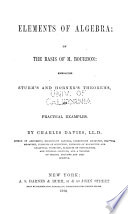 | Charles Davies - Algebra - 1860 - 412 pages
...have, a" =(N')*= \fW - - (6). But from the definition, — = log ("yF) ; that is, The logarithm of any root of a number is equal to the logarithm of the number divided by the index of the root. 234i From the principles demonstrated in the four preceding articles,... | |
 | Henry Lee Scott - History - 1861 - 674 pages
...the product of the logarithm of the number by the exponent of the power ; and the logarithm of any root of a number is equal to the logarithm of the number divided by the index of the root. These properties of logarithms greatly facilitate arithmetical operations.... | |
 | Benjamin Greenleaf - Algebra - 1864 - 420 pages
...rth power, we have mr = (<f)r = a*". Therefore, log (TO') = xr = r log m. 402. The logarithm of any root of a number is equal to the logarithm of the number divided by the index of the root. For, let m = a' ; then, extracting the rth root of both members,... | |
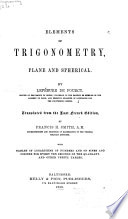 | Lefébure de Fourcy (M., Louis Etienne) - Trigonometry - 1868 - 350 pages
...shall have a"» = <* УBut, ^ = log tj/"y7and x = log y. Hence «lo That is, the logarithm of the m"1 root of a number is equal to the logarithm of the number divided by the index of the root. LOQABITHlfS. 5 and then finding in the tables the number whoso logarithm... | |
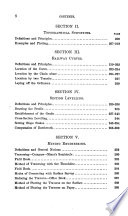 | Charles Davies - Leveling - 1871 - 448 pages
...we have, 1CT = ym; whence, by the definition, I = log j/^. ...... (9.) That is, the logarithm of any root of a number, is equal to the logarithm of the number divided by the index of the root. The preceding principles enable ns to abbreviate the operations of... | |
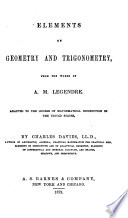 | Charles Davies - Geometry - 1872 - 464 pages
...4 ), we have, • «d' = \/m ; whence, by the definition, ~ .... (9.) That is, the logarithm of any root of a number is equal to the logarithm of the number divided by the index of the root. TABLE OB LOGARITHMS. 9. A TABLE OF LOGARITHMS, is a table containing... | |
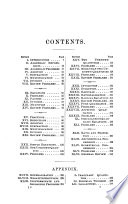 | Daniel Barnard Hagar - Algebra - 1873 - 278 pages
...member, we have in which x— y is the logarithm of the quotient — . 5. The logarithm of any power of a number is equal to the logarithm of the number multiplied by the exponent of the power. For, raising both members of the equation ax = m to any power p, we have a?* = mP, in... | |
 | Aaron Schuyler - Measurement - 1873 - 508 pages
...: x, to find x. Am. 2014.96. INVOLUTION BY LOGARITHMS. 22. Proposition. The logarithm of any power of a number is equal to the logarithm of the number multiplied by the exponent of the power. Let -(1) b* =n; then, by def., log n =x. (1)"=(2) b"*=n"; then, by def., log n"=jpx.... | |
 | Charles Elsee - 1873 - 320 pages
...ie the logarithm of a number less than unity is negative. 160. — PROP. The logarithm of any power of a number is equal to the logarithm of the number, multiplied by the index of the power. For if x = log . га, я = о*, . • . nm = a1"* . • . loga (я™) = mx =... | |
 | Aaron Schuyler - Navigation - 1873 - 536 pages
...the fifth power of .9. .Ans. .59049. EVOLUTION BY LOGARITHMS. 25. Proposition. The logarithm of any root of a number is equal to the logarithm of the number divided by the index of the root. Let (1) b• = n; then, by def., log n = x. = (2) b'r —\/n; then,... | |
| |